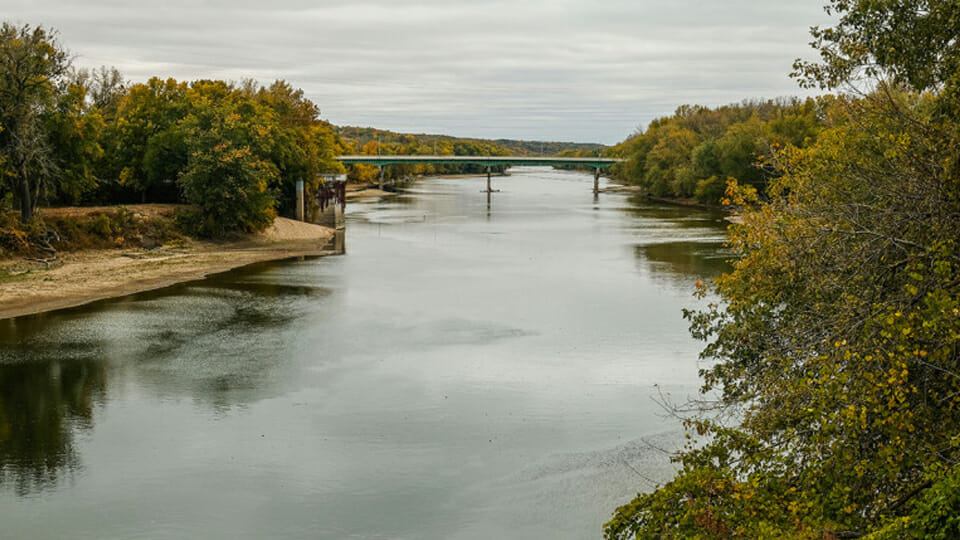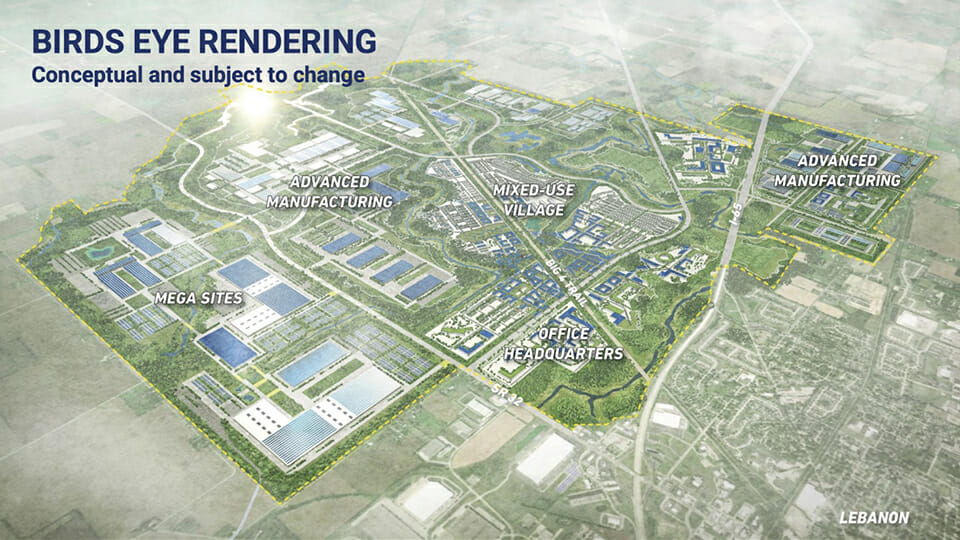Tippecanoe County extends pipeline moratorium as IEDC eyes other water options for LEAP
Subscriber Benefit
As a subscriber you can listen to articles at work, in the car, or while you work out. Subscribe Now
At the same time as the Indiana Economic Development Corp. is asking the state for $50 million to finance a pipeline that would provide water to the LEAP Research and Innovation District, officials in Tippecanoe County have extended a moratorium on high-capacity water withdrawals from Wabash River aquifers.
Tippecanoe County Commissioners first enacted a stoppage to high-volume water withdrawals in November in response to an IEDC proposal to take 100 million gallons a day from Wabash River aquifers and carry it 35 miles away to the LEAP district.
LEAP, which stands for Limitless Exploration Advanced Pace, is the IEDC’s major effort to draw giant tech manufacturing facilities to the state in Lebanon.
The first moratorium was due to expire soon, but on Monday the three commissioners voted unanimously to extend it for another year.
Commissioner Thomas Murtaugh told Inside INdiana Business that he pushed for an extension to the ban for a few related reasons. First, the Indiana Finance Authority is still wrapping up a comprehensive regional water study for north central Indiana that will examine watersheds covering 14 counties. There’s also going to be a new governor in office come January.
But most importantly, Murtaugh said commissioners had hoped their original ban would give the legislature time to address water rights in this year’s session, but that didn’t come to pass. The extension gives lawmakers another session to look at the issue.
“We wanted to make sure we did not have a lapse in [the moratorium] until we had the results of that 14-county study. Also in the hopes that we can encourage the state legislature to look at statewide water policy, because that’s ultimately what needs to happen,” said Murtaugh.
During last year’s debates over the IEDC’s proposal, a couple of lawmakers from the Lafayette area did draft legislation that would require groundwater withdrawals of at least 10 million gallons of water per day to receive prior approval through the Indiana Department of Natural Resources. That legislation wasn’t discussed in the 2024 session but likely will be in 2025.
The moratorium now extends into September of 2025. It bans anyone from exporting more than 5 million gallons per day out of Tippecanoe County and also prohibits high-volume radial collector wells.
Changing course
The extension on the moratorium in Tippecanoe County comes as the IEDC appears to be looking at other ways to get water to the LEAP district. The IBJ reports the IEDC is asking the state for $50 million to finance a pipeline that would bring around 25 million gallons of water a day from the Whitestown and Westfield areas to Lebanon.

That pipeline would serve the needs of the park for the next 15 to 20 years, but the area would ultimately need additional water supplies to reach its projected scale.
Murtaugh said news that the IEDC is looking for different sources of water for the LEAP district is welcome and represents a turn to common sense solutions. He thinks that drawing some water from the Wabash River will probably happen, but it shouldn’t be the sole source.
“Ultimately I think that’s the best answer—to be looking at several different suppliers instead of one,” Murtaugh said.
The state budget committee is expected to decide on the IEDC’s request for funding on the new pipeline Thursday morning.
Tippecanoe County Commissioners believe the moratorium played a major role in causing the IEDC to look elsewhere and in getting lawmakers to look at the larger issue of water rights.
The IEDC had commissioned a study on the feasibility of taking the 100 million gallons a day from the Wabash aquifers, but after commissioners passed the moratorium Gov. Eric Holcomb decided to shift oversight the study from the IEDC to the IFA.
Since then, local officials say the IFA has been much more communicative and they expect to see the results of that study in November.
As Tippecanoe County Commissioner David Byers said at Monday’s meeting, “I think this really woke a lot of people up.”
